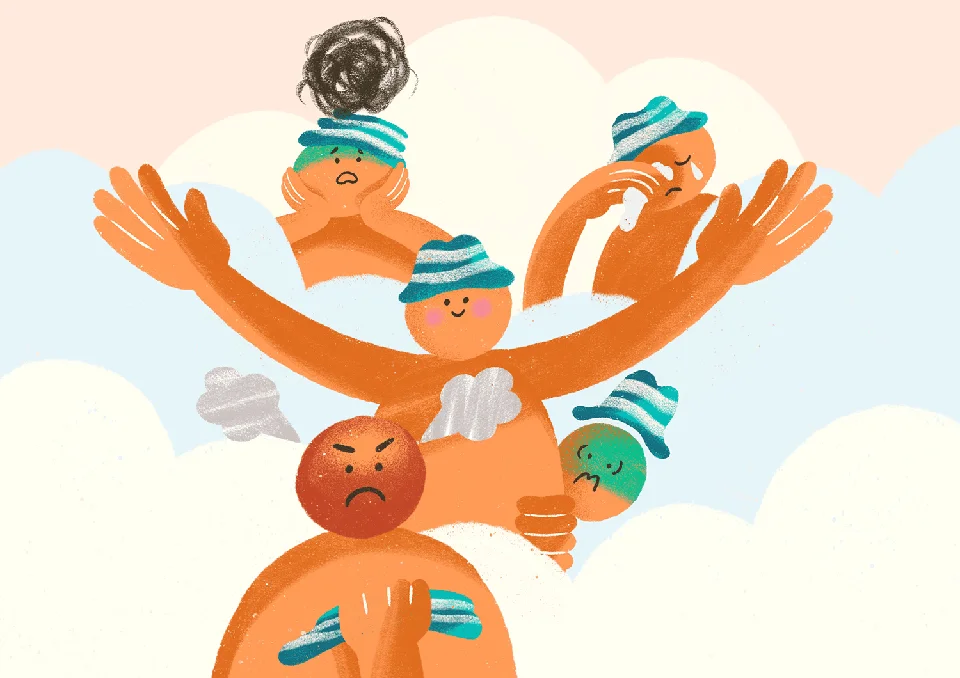The classic, iconic song ''Don't Look Back in Anger'' conveys the message that we do not have to contemplate on the loss and anger of the past- ‘‘Step outside, summertime's in bloom.’’ Reflecting on and contemplating about the past may be part of human nature. However, when our mind lingers on bad memories and turns them into ruminations, how does it affect our mental state?
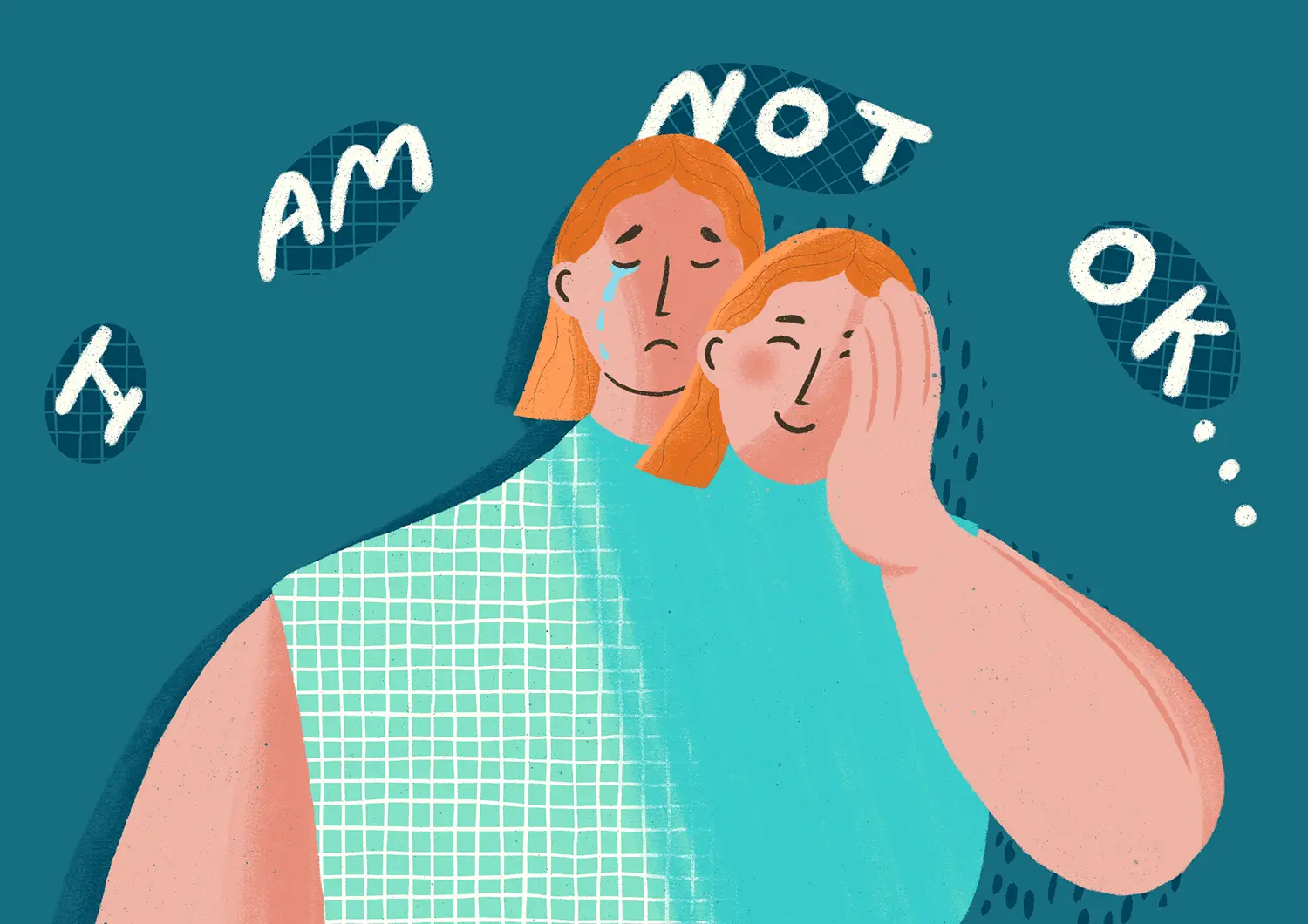
What is Rumination?
Rumination and worrying are our responses to stressful events, when we repeatedly dwell on distressing thoughts and feelings, our thoughts being entangled in the same problem and our emotions fall into the whirlpool of troubled thoughts. Common thoughts include: "Why is this happening to me?’’, "Why do I feel this way?", "Why bad things keep happening to me?"
For instance, after a breakup, we may start wondering "Why did they do that?’’, "Did I do anything wrong?" Or " Would things have been different if I didn't do that?". We may even start blaming and critiquing ourselves or others around us; the mind is like falling into the eye of a storm, which can affect our emotions, physical reactions and behaviors, such as feeling tired and muscles tensed (physical reactions), avoiding interactions with others (behaviors).
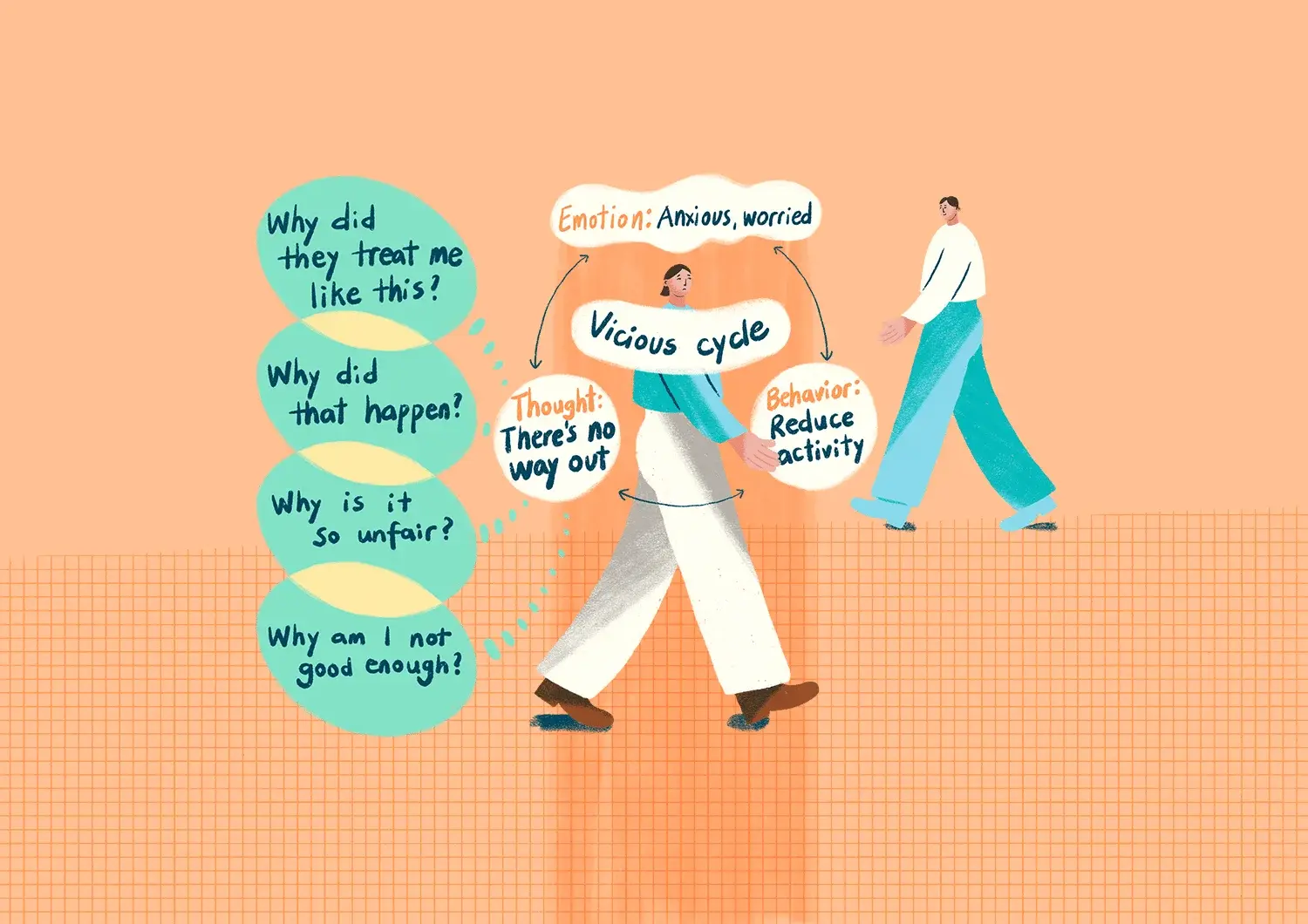
Why Do We Ruminate?
A study showed that even though all participants agreed that ruminations have enormous drawbacks, about 80% of them at the same time, also believed that ruminations have at least one perceived benefit, including increased self-awareness, understanding of depression, and ability to solve problems and prevent future mistakes.
Nearly 40% of the participants found meaning and solutions to the problem in ruminations. Participants with higher levels of self-reported ruminations endorsed significantly more strongly the reasons for ruminating. In fact, ruminations may not be constructive to our mental health. Experiencing frequent ruminations can make us more vulnerable and harder to deal with difficult situations, affecting our daily lives.
Psychologists have studied the mechanisms that maintain ruminations and have developed the HEXAGON model.
H-EX-A-GO-N refers to
- Habit development: Rumination initially occurs as a goal-directed action, but over time it can become a habit automatically triggered by low mood.
- EXecutive control: Weak executive control may affect working memory, attention and other cognitive systems, so that some memories are more occupied in the mind and the brain is getting used to these thoughts/ memories.
- Abstract processing style: Abstract thinking such as "why did this happen?" focuses on the causes, underlying meanings, and consequences of behaviors and events, whereas concrete thinking focuses on details such as "what can we do next?’’ Abstract thinking can lead to relatively unhelpful results and affect the ability to solve problems.
- GOal discrepancies: Repeated thinking stems from discrepancies between goals and results, for example, loss of employment, a relationship break-up. When repeated thinking fails to solve problems and develops into a habit, it becomes a vicious cycle of rumination.
- Negative bias: Biases in information-processing such as the tendencies to interpret ambiguous information negatively and preferentially attend to negative information, leading to the recall of more negative information.
A single occurrence of the five mechanisms does not sufficiently develop rumination; rather, the elements are usually interrelated, contributing to the onset and maintenance of rumination in an additive and synergistic way, and occur simultaneously to develop patterns of thought that affect our body and mind.
For example, negative bias (N) can lead to greater cognitive goal discrepancies (GO), which can increase the habit of rumination (H). Consistent rumination may also affect executive control (EX) and exacerbate negative interpretations (N) of situations.
A simple example: at a party, no one talks to me, so I feel that people do not like me (negativity bias); I fall into the thoughts of "why is everyone not talking to me?’’ or other similar abstract questions (abstract processing). The same thoughts may recur when I later attend a party (habit development).
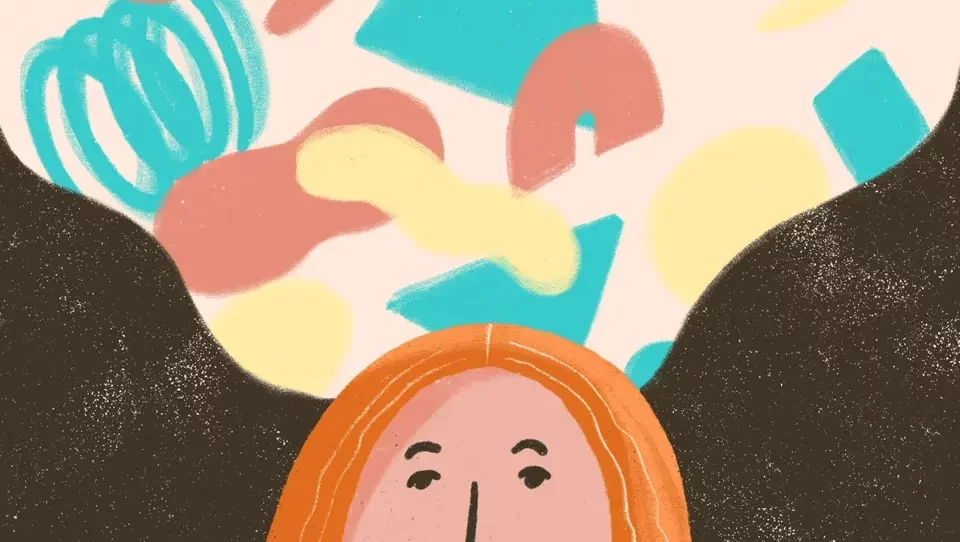
What are the Effects of Rumination?
Studies have found that rumination brings the following impacts:
- Exacerbates emotional distress, including depression, anxiety and anger
- Increases the possibility of experiencing further psychological distress, such as anxiety, depression, insomnia, etc.
- Undermines thinking and problem-solving abilities
- Interferes with the effectiveness of psychotherapy
- Intensifies and sustains physical discomfort
Online Cognitive Behavioral and Mindfulness-based Therapy
In response to the above-mentioned HEXAGON mechanism that maintains rumination, psychologist Prof. Edward Watkins has developed rumination-focused cognitive behavioral therapy. It breaks the thinking cycle of ruminations, such as the formation of negative bias and abstract processing, thus eliminating the habit of rumination.
JCTH+ Free Online Rumination-focused Cognitive Behavioral Therapy Course includes:
- In-depth content led and developed by clinical psychologists
- Questionnaires to help you understand your patterns of rumination and worrying
- Stories from people who have experienced rumination
- Mood diary to help you understand and record emotional changes
- Learn to replace rumination with relaxation exercises and concrete thinking
- Three rules of analyzing problems (determining if worrying and ruminating are not helpful)
- "If-Then" plan, etc.
Through guided audios, videos, exercises, and text, we learn how to be aware of emotional changes, be mindful of environmental factors (time, place, person) that trigger ruminations, as well as the physical and emotional signs of stress. We can learn to think specifically and be kind and compassionate to ourselves, design new responses to our thinking and behavioral habits.
In addition to cognitive behavioral therapy, research studies have also shown that mindfulness-based therapy is effective in reducing ruminations and alleviating depression or anxiety symptoms.
We invite you to become a member of JCTH+ and join our free online mindfulness-based and rumination-focused cognitive behavioral therapy courses to build your mental muscles and become a stronger version of yourself. Embrace all of our emotions calmly, feeling their ebb and flow, come and go.
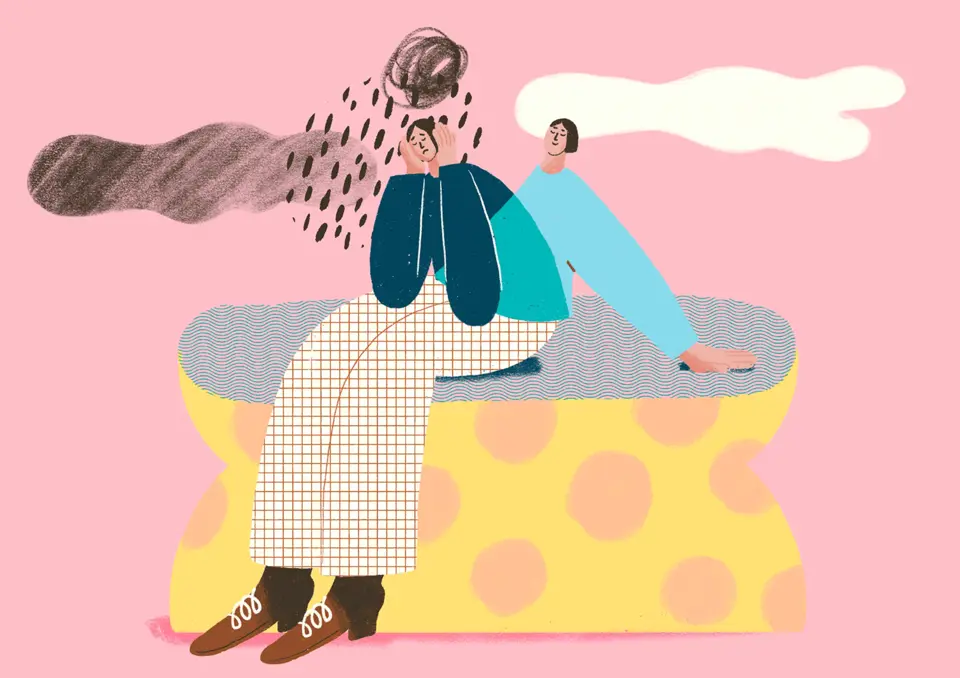
Reference:
Cook, L., Mostazir, M., & Watkins, E. (2019). Reducing stress and preventing depression (RESPOND): randomized controlled trial of web-based rumination-focused cognitive behavioral therapy for high-Ruminating University students. Journal of Medical Internet Research, 21(5), e11349.
Querstret, D., & Cropley, M. (2013). Assessing treatments used to reduce rumination and/or worry: A systematic review. Clinical Psychology Review, 33(8), 996-1009. https://www.sciencedirect.com/science/article/abs/pii/S0272735813001207
Watkins, E., & Baracaia, S. (2001). Why do people ruminate in dysphoric moods?. Personality and individual differences, 30(5), 723-734. https://www.sciencedirect.com/science/article/pii/S0191886900000532
Watkins, E. R., Mullan, E., Wingrove, J., Rimes, K., Steiner, H., Bathurst, N., et al. (2011). Rumination-focused cognitive-behavioral therapy for residual depression: Phase II randomised controlled trial. British Journal of Psychiatry, 199(4), 317–322. https://pubmed.ncbi.nlm.nih.gov/21778171/
Watkins, E. R. (2018). Rumination-focused cognitive-behavioral therapy for depression. Guilford Publications.
Watkins, E. R., & Roberts, H. (2020). Reflecting on rumination: Consequences, causes, mechanisms and treatment of rumination. Behaviour Research and Therapy, 127, 103573. https://www.sciencedirect.com/science/article/pii/S0005796720300243


